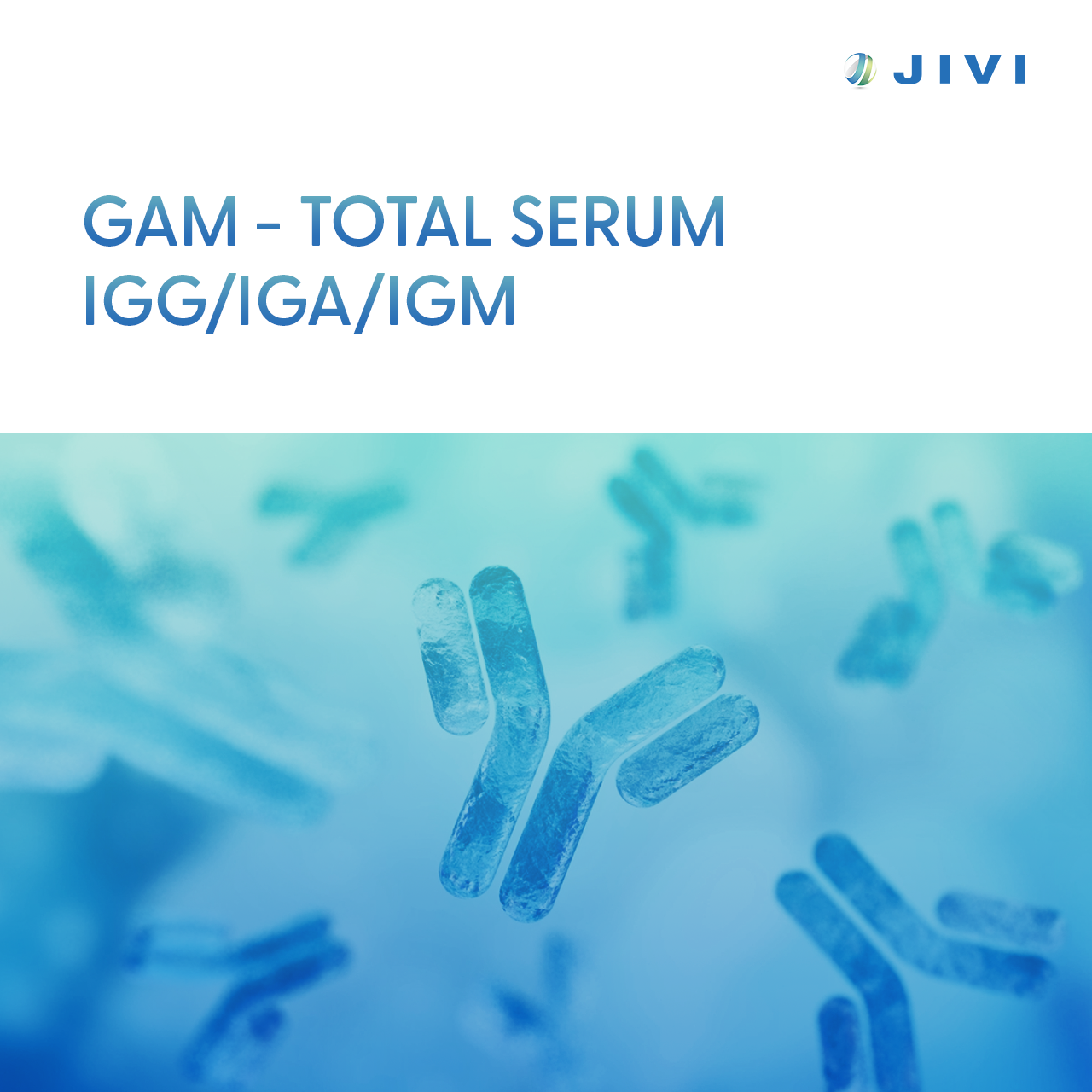Description
GAM – Total Serum IgG/IgA/IgM
Overall, this test serves as a basic screening of immunological health.
What does this test measure?
This lab test quantifies the total concentration of the major classes of immunoglobulins in blood:
- IgG (which comprises ~70-75% of serum antibodies, main chronic/adaptive immunity)
- IgA (about 15%, includes mucosal IgA that also enters blood)
- IgM (about 10%, first responder antibodies)
Low levels of immunoglobulins may indicate an immunodeficiency; for example, common variable immunodeficiency often presents with low levels of both IgG and IgA, with IgA sometimes being deficient from birth. Conversely, high levels may suggest chronic infection or inflammation, or conditions such as liver cirrhosis (which typically shows a polyclonal increase), autoimmune diseases (often indicated by elevated IgG), or immunoproliferative disorders.
Who is this test most suitable for?
- Patients with recurrent sinopulmonary infections
- Those with chronic diarrhea (IgA deficiency can cause GI infections)
- Individuals with general fatigue or weight loss with high globulin on CMP
- People with unusual infections like giardia (often in IgA deficiency)
- Asymptomatic individuals with abnormal lab results (like low total protein)
Clinical Use
This test is part of the initial evaluation of immune status and may be used for monitoring known immunodeficiencies. If a patient has low total IgG, further testing may be necessary, potentially leading to IVIG therapy. If the levels are extremely high, additional tests, like serum protein electrophoresis, may be performed to determine if the increase is monoclonal.






